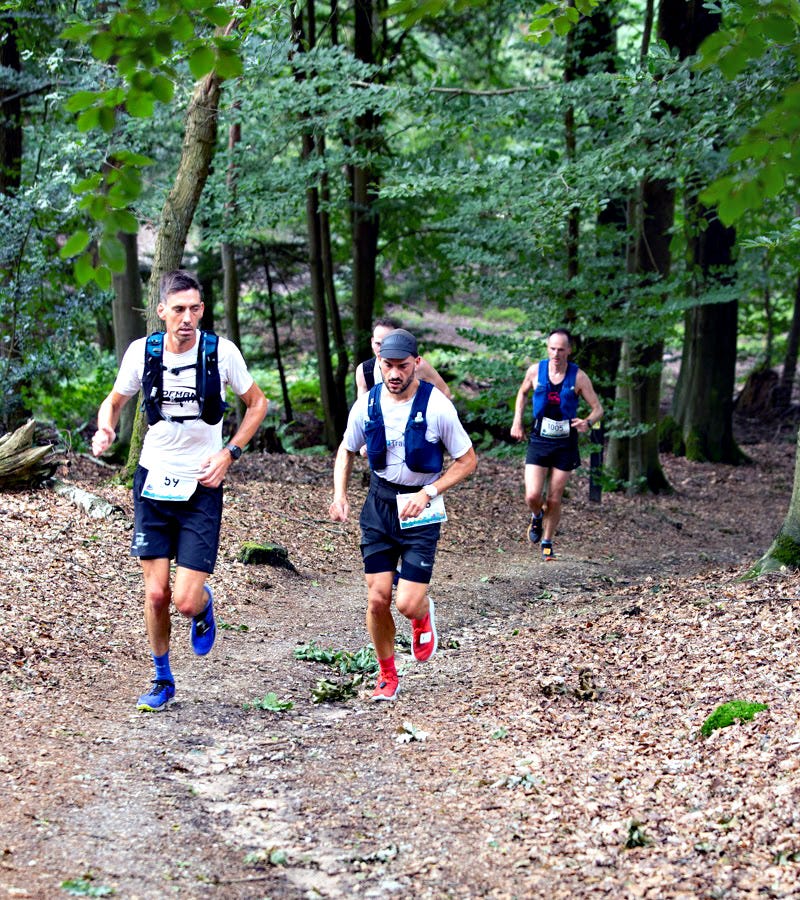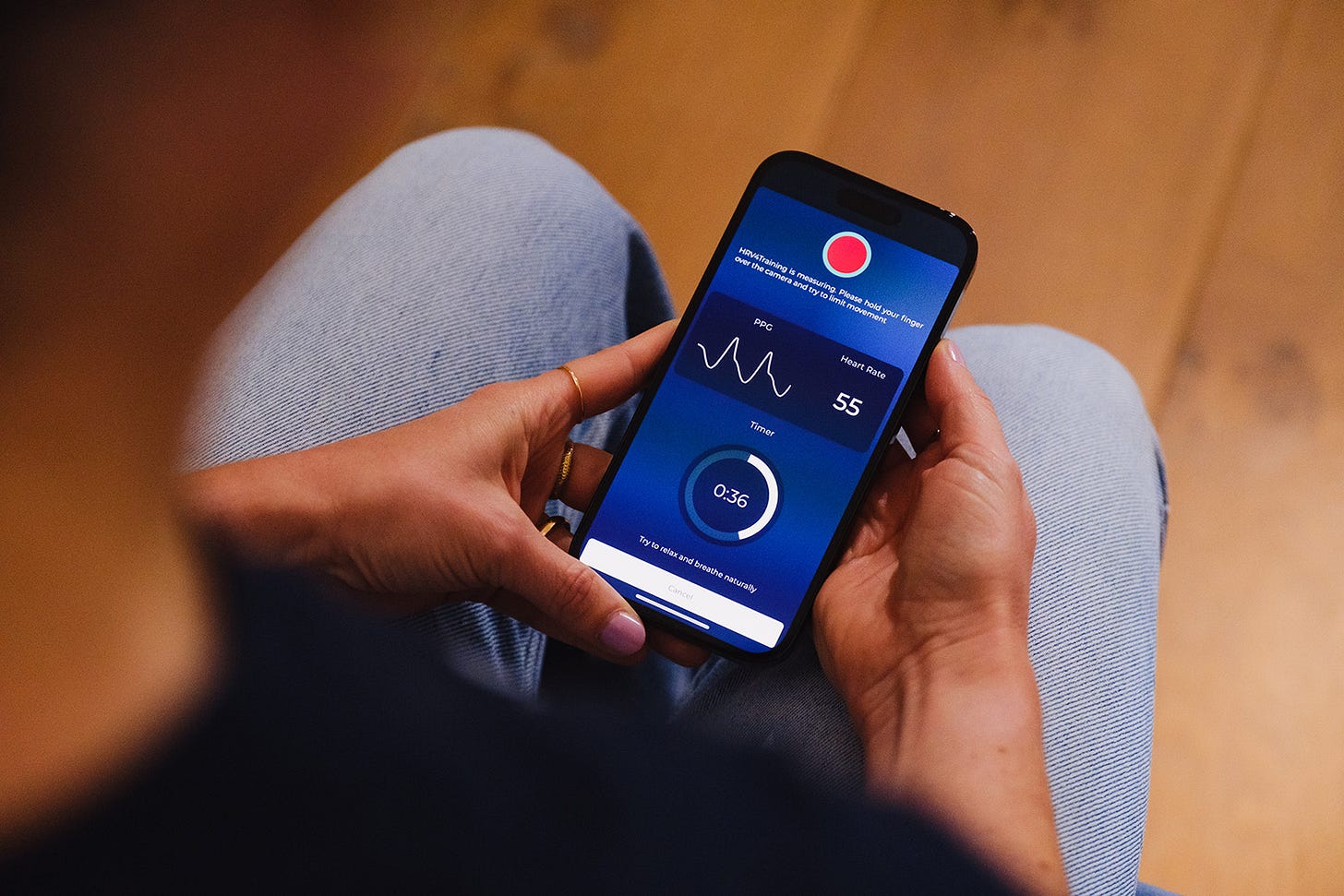[TrainingTalk] Notes on detraining and cross-training
use it or lose it
Two weeks ago I got injured (I think I had a minor tear in my calf, following two very good races, a 5 km PR and a trail race where I finished pretty hard and possibly paid for it by not allowing for enough recovery on the following day). Anyways, since I could not run, I was curious to see what the research says in terms of detraining and how to limit detraining by e.g. cross-training.
This blog is far from a comprehensive review, but I’d like to cover a few important aspects and provide takeaways that might help others in a similar situation.
To run or not to run
When I have some physical problem, a niggle, or a more problematic injury, normally I go by a few simple rules, to decide if running is on the table or not, or if / when I should stop.
In case of sharp pain, I do not run. Nothing good can come from that situation typically.
If I do not have sharp pain, I think running very easy is fine, as long as the following happens: 1) I do not get worse as I run, 2) I do not get worse after the run or the following day. In other words, as long as it doesn’t get more painful, I think movement and even running can only speed up recovery (plus, this helps a lot in maintaining fitness, as we will see in a second).
If I do feel more pain as I go (case 1), then I stop right away and walk it home. If I feel more pain the day after (case 2), then I take other days off.
How quickly do we lose running fitness?
Normally, when injured, we always try to find other ways to train. Hence scientific literature on detraining is mostly useful as a worst-case scenario, since it normally requires participants to stop exercising completely, and see how their fitness changes over the following weeks or months. Under these circumstances, we lose about 2% of our fitness per week (e.g. a decrement in VO2max, running economy, etc.), when not training.
Ross mentions a few interesting studies in which a bit of training was maintained, e.g. only the hard part of training, which is a much smaller percentage of the typical week. This approach was sufficient to maintain performance over the short distance (e.g. a 5 km time trial), but resulted in reduced performance for sustained or longer efforts (as expected, given that little training was done).
While this is possibly useful to know if you have a busy week, it doesn’t really help when we are injured, since hard running is normally the last thing we can do.
Can cross-training help?
Cross-training refers to doing some other sport, where we do not use in the same way the injured muscles, so that we can still train and hope to maintain fitness. Ideally, we want to do sports where fitness transfers well to our main sport.
For a runner, cycling is normally a good choice, and there is enough literature showing that certain aspects of fitness transfer really well between the two sports (e.g. VO2max can be fully maintained by cycling instead of running). Other aspects cannot really be maintained, for example, running economy does require that we run, and therefore will be reduced, leading to reduced performance despite the same VO2max (see this study). This makes intuitive sense, and there is probably no way around it if we cannot run at all.
Cross-training can be applied in many different ways, for example when not injured, we could still decide to increase our total training volume using cross-training as opposed to increasing the volume of our main sport. While there is no better way to improve performance than increasing the volume of our main sport (principle of specificity), this could come with higher risks (e.g. running more can increase injury risk), and therefore we might want to add cross-training, which would still increase performance with respect to simply maintaining our current training volume (see this study).
When injured, cross-training is certainly the way to go.

My approach
In the past 2 weeks, I have been cycling quite a bit, since I have no pain when cycling. I have also tried to gradually spend more and more time on my feet, first by walking 2-3 hours per day, and then by adding short runs (until I felt a sharper pain and stopped). I went for 2 km, then 3 km, 5 km, and yesterday 10 km. In the second week, I was also able to run a short progression, hence a bit of higher intensity. It’s definitely getting there, and while these runs don’t feel like much with respect to what I was doing before, I believe they will be key in getting me back to normal much faster (i.e. a much lower detraining, considering that doing only ~20% of your typical training can reduce losses in fitness by ~50%, hence you maintain quite a bit by doing very little).
In the past, when trying this, I think I simply did not cycle enough, while these two weeks I cycled about 20 hours/week, which seems a more appropriate volume to maintain my current fitness. In terms of cycling, I have mostly done easy cycling outdoors and added 1 or 2 sessions per week where I tried to push harder, even just for short intervals, which should be beneficial.
I have struggled a bit with the intensity on the bike as my legs are a clear limiter, and I don’t really feel challenged from a cardiorespiratory point of view (heart rate stays relatively low), but this is getting a bit better already in the second week of training, as my legs are getting more used to cycling.
Takeaways
My understanding from the literature on cross-training, and in particular from studies where no specific training is maintained (e.g. an injury) and other studies on detraining (where some specific training remains), is that the situation is quite different between the two conditions: a little specific training goes a long way.
What I gather is that you can maintain (and probably improve) performance by adding lots of cross-training and keeping some key specificity (ideally the high-intensity part of training). While it seems also that nothing beats "more specific training", it might not be preferable or possible at times for a number of reasons (injury risk, sport seasonality, or else). We do need to speculate and extrapolate though, given the limited studies available.
While studies do not go this far, I was thinking that for someone like me, with "high VO2max, low economy", cross-training (i.e. cycling) might be less beneficial, and I should really focus on running as much as possible while staying healthy (which is what I did in the past two years).
On the contrary, for someone with good/great economy, cross-training would potentially help "improving VO2max" (or aspects of training that are more transferrable), without impacting much economy. This is just me speculating based on a number of studies, there is no study showing that this is (or is not) the case. Maybe this approach could lead to more individualized cross-training, but at the same time, it is also the reason why I do not incorporate cross-training normally: my weakness is running economy, and improving running economy means running more (plus maybe plyometrics and a few other things).
I hope this was useful!
How to Show Your Support
No paywalls here. All my content is and will remain free.
As a HRV4Training user, the best way to help is to sign up for HRV4Training Pro.
Thank you for supporting my work.
Endurance Coaching for Runners
If you are interested in working with me, please learn more here, and join the waiting list by filling in the athlete intake form, here.
Marco holds a PhD cum laude in applied machine learning, a M.Sc. cum laude in computer science engineering, and a M.Sc. cum laude in human movement sciences and high-performance coaching.
He has published more than 50 papers and patents at the intersection between physiology, health, technology, and human performance.
He is co-founder of HRV4Training, advisor at Oura, guest lecturer at VU Amsterdam, and editor for IEEE Pervasive Computing Magazine. He loves running.
Social:





You should check out this article (https://alancouzens.com/blog/specificity.html) from Alan Couzens where he states that there is a ~2/3 relationship between the specific v non-specific mode, meaning 3 hours of cycling equates to 2 hours of running when it comes to maintaining VO2max (he agrees with you about run economy though) !
Aight. I biked like 700 km with lots of elevation before a 66k 3370m trail run and then biked back to the NL it went all well sir. Guess it’s all about the mindset 🙏🏼🫡 to the topic: biking has lots of benefits as increasing (long slow) and enlarging (intervals)mitochondria great alternative for running ill guess as I ride my fixie since 1998 since i worked as a bikemessenger and also love to make biketravels on my race bike 👌🤗 Ciao.